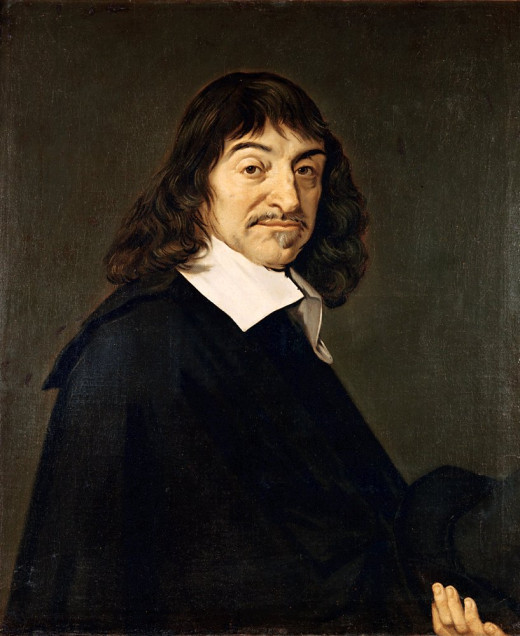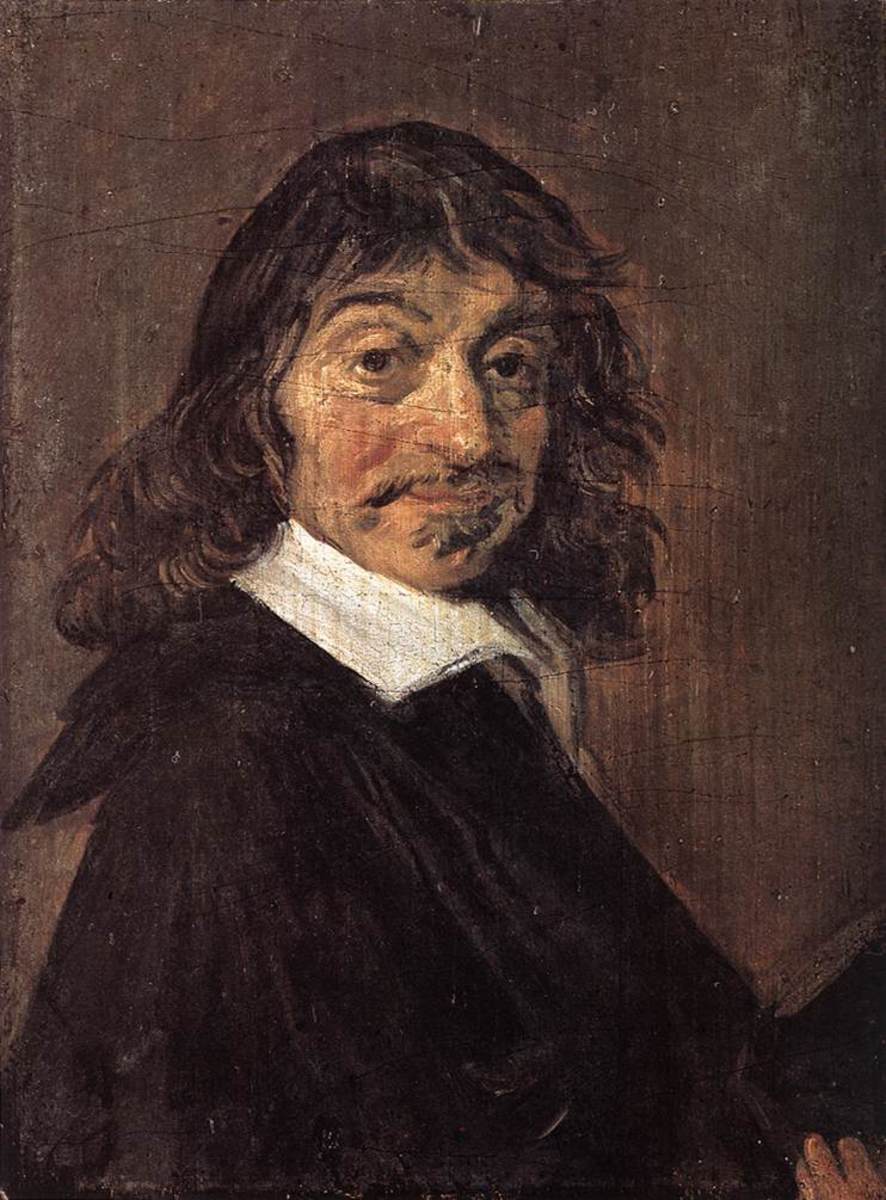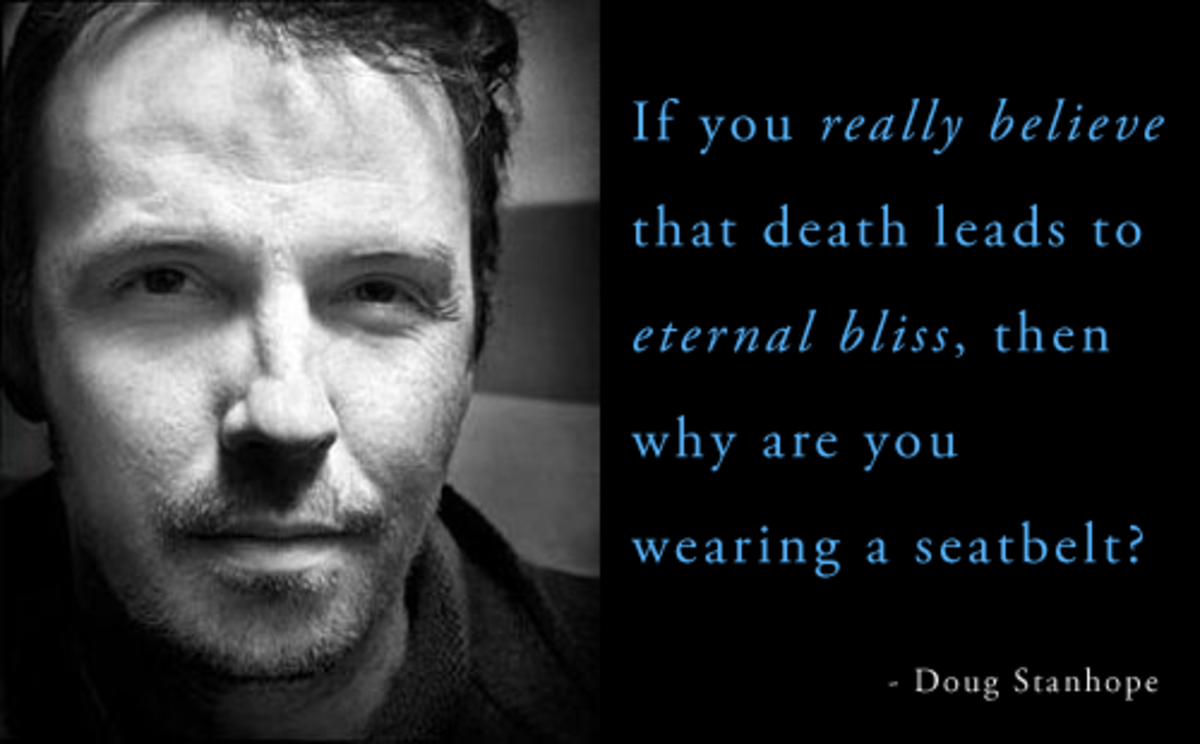Refuting the Meditations of Descartes on the Proof of God

Descartes uses his "Meditations on First Philosophy" as a way to argue that god exists, by using doubt to clear his mind of all thoughts, as they could all potentially be false. He proceeds to prove that he exists, on the basis that he thinks. In his third meditation, he lays out two separate arguments for the proof of the existence of god, however several flaws can be found in his seemingly watertight argument, of which many will be addressed.
Descartes begins his third meditation by summarizing a few points that he had made in his previous meditations, as they will be pertinent in the logic of his third meditation. He restates that he is “a thing that thinks: that is, a thing that doubts, affirms, denies, understands a few things, is ignorant of many things”(Descartes, Pg. 24), and that he has sensory perceptions. However, he reiterates that his senses are deceptive and that anything stemming from them may be false, and that he cannot rely on them. Thus, he sets out to discovery one thought beyond his own existence that he can, with certainty, know is true, and he turns to the idea of God, or as he states it, “to remove even the slight reason for doubt, as soon as the opportunity arises I must examine whether there is a God”(Descartes, Pg. 25). Up to this point, Descartes logic and reasoning is quite concrete, with little room to debate, because of his very sequential and methodical approach to these thoughts. With this solid base, he moves on to his arguments on the proof of the existence of God.
Cause and Effect
The first point that Descartes makes in his argument on the existence of God is the concept of cause and effect. He argues that everything, from his thoughts to everything outside of him, granted there is anything outside of him, is just the effect of a cause. Everything had to have a beginning, and as Descartes explains it, “something cannot arise from nothing”(Descartes, Pg. 28). He also makes the point that the cause will have to have more formal reality than the effect has objective reality, because it would be impossible for something less real to create something more real than it. These points are hard, if not impossible to refute, as they all rely on each other to be true and all subsequently support each other.
Using these points, Descartes is able to make his first assertion about God. He claims that God, as “the creator of all things that exist apart from him”(Descartes, Pg. 28), as this is what his idea of a God is, must have more formal reality than everything else in order to create them with any degree of objective or formal reality. Again, there is not a trace of weakness in this argument either, the logic seems to make sense, as it is not possible for one to imagine a case where a less real thing, like a thought, could spontaneously produce an object of substance. He then takes a step back and asks why the ideas he has of everything “cannot originated from myself”(Descartes, Pg. 30), because as he observes, he perceives everything with size, length, breadth, depth, shape, and so on (Descartes, Pg. 30). He answers the question by bringing in his original point, that he is a thing that thinks, and that is all he is, and thus could not truly know what these dimensions mean. He uses this to make the claim that “namely extension, shape, position and movement, these are not formally contained in me, since I am nothing but a thinking thing”(Descartes, Pg. 31), or in other words, he cannot perceive the elements of something which he, himself, does not possess. This essentially rules out every idea he has in his mind, except for the idea of God. He explains that, “By the word God I understand a substance that is infinite, independent, supremely intelligent, supremely powerful”(Descartes, Pg. 31), and that these are very unlikely to have originated with him, and that they only way they could have arrived in his mind, would have to be that they were planted there by God, and therefor, God must exist.
As Descartes's argument progressed, weaknesses began to surface. He makes the claim that any element that he himself does not possess, cannot possibly be perceived by him. However, he explains that he can perceive size and shape, but there is no indication that he actually has size or shape, as a thinking thing, and thus could not possible perceive them. This then begs the point, how come Descartes does not initially rule out the idea of God as well? It doesn't seem likely that Descartes is all powerful and all knowing, so how could he perceive these elements in an idea? Also, Descartes proceeds to explain that because he is not perfect, it would be impossible for him to have an idea of a perfect being, thus God, who is perfect, would have had to plant it. But why couldn't he have developed an idea of a perfect being? He was able to perceive that he is not perfect, thus he would be able to imagine a perfect being by thinking of the reverse of himself, and thus this cannot be used as proof of God, because Descartes could imagine a perfect being, without one existing. His argument about how something cannot come from nothing contradicts the whole idea of God as well. Even if by all other proof God does exist, the argument can be made that something had to cause God, and that he cannot be the absolute beginning to all. Something with even greater reality than God must have created God and this in turn leads us to an infinite regress, that everything had to come from somewhere, nothing cannot be the beginning in any instance
Alternatives to God
Descartes proceeds to make a second argument, or series of arguments where he tries to eliminate any alternative to God for the cause of his existence. He first approaches the idea that he could have created himself. This is not possible, according to his logic because “I should have given myself all the perfections of which I have any idea, and thus I should myself be God”(Descartes, Pg. 33). Because he does not see himself as a perfect being, this is not an option. The next approach is that he could have always existed. This does not seem likely to Descartes, because in order for this to be possible, there would have to be “some cause which as it were creates me afresh at this moment – that is, which preserves me”(Descartes, Pg. 33). He cannot find anything that would fit this condition, and so he rules this out as well. Descartes addresses the option of his parents being his cause. This does not satisfy him, because even if they were his cause, that logic would have to apply on forever, until one being that didn't have a cause could be found, namely God. At this point, Descartes turns back to the concept of perfection to prove that it is not possible that “several partial causes contributed to my creation, or that I received the idea of one of the perfections which I attributed to God from one cause and the idea of another from another”(Descartes, Pg. 34). His argument is that this would go against his idea of what perfection is, to have all the aspects broken up. He believes that perfection is one entire entity. The last alternative that he addresses is the option that perhaps he came from something less perfect than God. But Descartes brings in his past argument that in order for him to have any idea of what perfection actually is, it had to have come from an at least perfect being, and thus this alternative is impossible. This end his third meditation, and Descartes believes that he has effectively proved that God exists and eliminated any possible other cause that may have been presented.
In this second set of arguments, even more weaknesses and flaws show through Descartes logic. His first argument, that he could not have created himself is very weak. Why, if he did create himself, would he have had to make himself perfect? He could have very well have made himself less than perfect for any number of reasons. This also brings up the point of, how does he know he is not perfect? He may be a perfect being, but he just refuses to believe it. His logic on the fact that he could not have always existed seems rather concrete, he obviously would have to have something sustaining him and he would have had to start somewhere. However, using this logic actually is proof against the existence of God. What sustains God? Nowhere does Descartes address this, though he seems to feel that it would be necessary for any being. The alternative of having many creators is also somewhat weak because it is dependent on Descartes's opinion of what perfection is. Only because perfection must be contained in one body does this not work for Descartes. Finally, the idea that he couldn't have come from something less than perfect is also an arguable point. Something that is less than perfect could have created him, as long as it was more perfect than Descartes. While it still leaves open what actually is perfect, for Descartes's purpose it works well enough.
The logic that Descartes uses to prove that God exists is convincing and provides and effective argument. However, there are a number of points that any challenger could argue, and thus there is much room for debate of Descartes's views. As a mathematician, he is excellent at making an argument in the form of a proof, though he has something to learn in his method of providing meaningful and solid evidence.
This content is accurate and true to the best of the author’s knowledge and is not meant to substitute for formal and individualized advice from a qualified professional.








